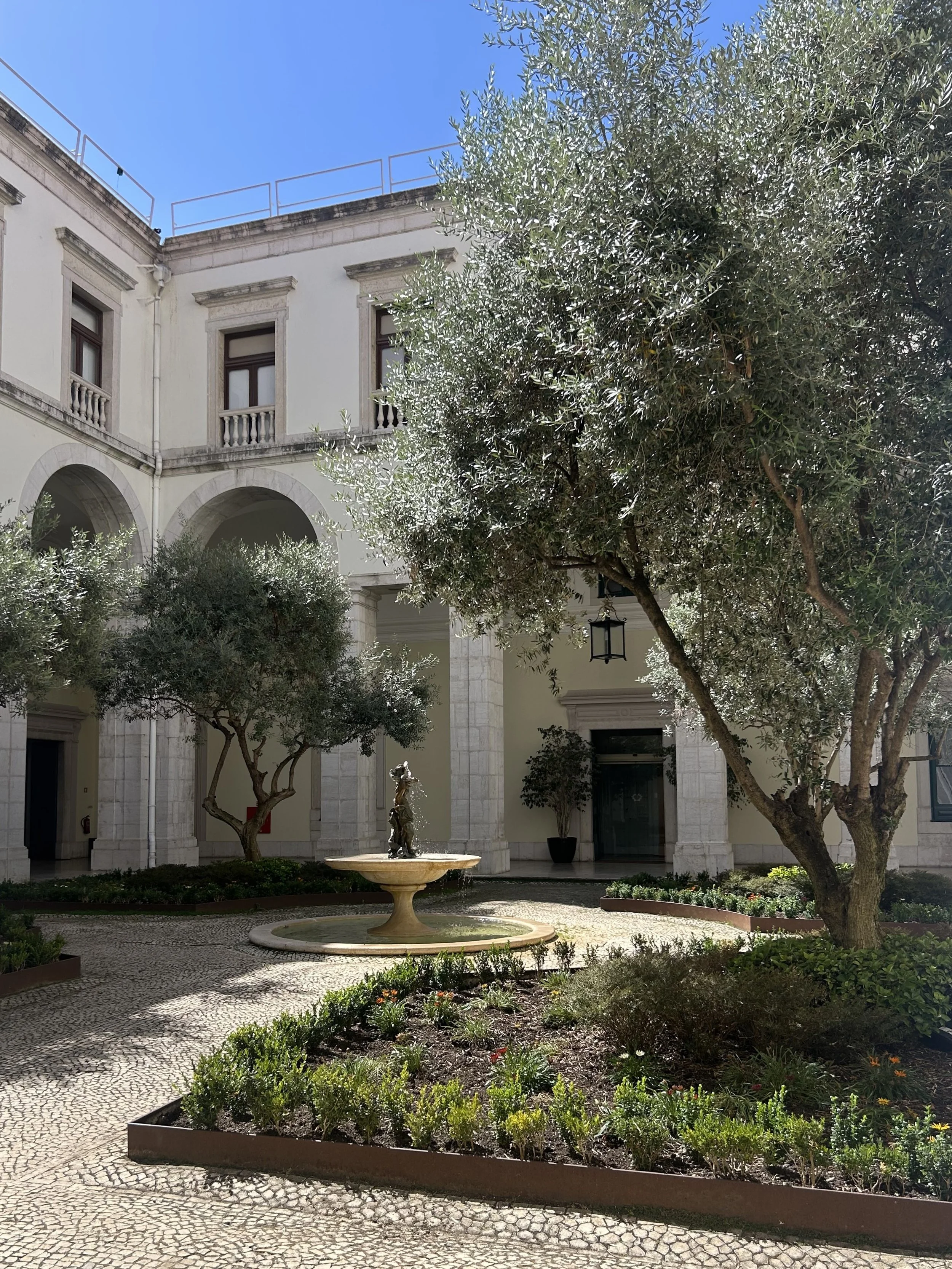The Impact of Political Fragmentation on Legislative Institution Workflow: A Global Perspective
BY BEATRIZ REY
A garden inside the Portuguese Assembly
Recent elections and political shifts across the globe have frequently led to increasingly fragmented parliaments, presenting both challenges and opportunities for democratic processes. The 2024 Portuguese legislative election resulted in a uniquely divided parliament where the Social Democratic Party and Socialist Party each secured 78 seats. This fragmentation, coupled with the rise of smaller parties, has given birth to "negative coalitions" — temporary alliances between ideologically opposed parties on specific issues.
Ana Paula Bernardo, director of the Parliamentary Support Directorate (DAP) in Portugal, explained that this new political landscape has significantly increased the workload for legislative staff. The rise in budget amendments and similar bills introduced by multiple legislators has expanded the volume of legislation to process. The DAP must handle every amendment and bill, regardless of similarity or probability of passage, resulting in a substantial increase in required staff time and resources. While this heightened legislative activity reflects a vibrant democratic process, it also demands more from support staff.
The Portuguese case is not isolated. In India, political division has weakened the parliamentary committee system. A stark example occurred in 2011 when ideological polarization in the Public Accounts Committee (PAC) prevented it from adopting a report on 2G spectrum allocation — a first in its history. By 2023, the situation had escalated to the point where the Ethics Committee recommended the expulsion of a legislator, showcasing the intensification of adversarial politics.
Research on polarization and legislative productivity reveals similar trends globally. In the United States, studies have shown that state legislatures with higher levels of civility (that is, where the discursive behavior of legislators engage in considerate, courteous, and respectful discussion) pass a greater number of significant laws compared to the ones with lower levels of civility. Interestingly, moderate conflict may also foster the creation of landmark legislation, while extreme division severely hampers it.
However, there are efforts to address these challenges. In 2021, the former US Select Committee on the Modernization of Congress crafted 25 recommendations to improve civility and cross-partisan collaboration. These initiatives include integrating civility into new Member orientations, hosting bipartisan gatherings, and creating a dedicated office to promote best practices. The committee also encouraged informal collaborations, establishing agreed-upon norms for Member interactions, and creating flexible workspaces to enhance cooperation. Additionally, they recommended displaying nonpartisan bill summaries to foster clearer understanding across party lines.
As legislative institutions worldwide grapple with increased political fragmentation, the experiences of countries like Portugal, India, and the United States offer valuable insights. While fragmentation can lead to more diverse representation and vigorous debate, it also presents challenges in terms of workload management and effective governance. The key lies in finding ways to foster cooperation and civility within these divided environments, ensuring that the increased complexity of modern parliaments translates into more robust and representative democratic processes rather than gridlock.
Bernardo's account of Portugal's evolving parliamentary environment, along with examples from other nations, serves as a crucial reference point for legislative institutions operating in diverse political contexts. As democracies continue to evolve, finding ways to balance representation, efficiency, and cooperation will be essential for the effective functioning of parliaments worldwide.

